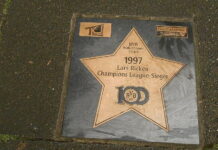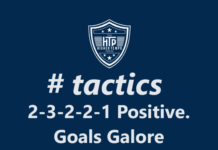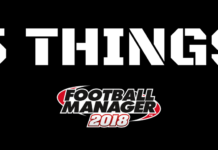Judging from discussion on the FM space on Slack:
- there is little attention paid to agents;
- what attention there is takes the form of annoyance, frustration, or disgust. All they do is take your money!
Well, my experience of agents outside football makes me question that. As a publisher I have had to deal with authors’ agents; and indeed I’ve worked as a literary agent myself — still do, in a small way. That experience has given me a different perspective.
The function of agents
Agents, like other intermediaries (such as retailers, wholesalers, and speculators), are apt to be regarded as parasites, on the grounds that they typically add little or nothing to the product they deal with.
That may be true, but it ignores the fact that agents provide something else: they provide a service. They provide a channel for connecting buyers and sellers and, at least at times, a mechanism for discovering mutually beneficial terms.
And here we should mention agent bias. Think the agent is biased in terms of the person they represent? Well, yes, that’s likely. But they will — at least if they are behaving rationally — be more biased in favour of the deal itself. That is, by and large, agents make money by getting deals done, so will tend to have at least some bias in favour of churning.
Preparing to deal with agents
When you’re looking to do a deal, go to the player’s information page. Knowing the style of agency will help with negotiations.
For example, I like patient negotiators, They usually manage to get out of me a little more than I intended or expect to give; but I don’t mind, because we do usually get the deal over the line. The little bit extra that they extract from me is the premium I pay for that. Overall, it tends to be money well spent.
The ones I hate are the impatient ones who bring the shutters down at the slightest provocation. But if I know I’m dealing with someone like that, at least I can try to adjust my negotiating tactics.
I have a soft spot for those agents who claim to put their players’ happiness above monetary concerns. This is an example of FM’s dry humour. What it actually means is that you’re going to have to give the agent a particularly large bung.
Look too at which other players the agent represents. This will give you a feel for how much you want to cultivate them. For example, if they represent some of your transfer targets, you really don’t want to alienate them.
Negotiating tactics
Wherever possible, I do the following:
- In my first response, I make the the deal more rewarding for the agent. I try to make it more rewarding than he was expecting.
- At least in the leagues I manage in (currently, Israel) I find I can do that by taking money off the player’s loyalty bonus. I reduce the bonus to almost nothing and lock it so that only i can ever increase it; and then I start to feed that money back into the deal in the form of the agent fee.
- During each round of the negotiation, I always increase the agent’s fee. I hate those agents who, by locking their own fee, prevent me from doing so. I suspect the ones who know me well don’t do that.
- But it’s no good increasing only the agent’s fee. You always have to make the deal at least a little better for the player too. That way, the agent can pretend that they weren’t corrupted by the fee you were offering them; they were genuinely winning a better deal for their client. Sometimes even small increments for the player will suffice to meet that requirement (I even sometimes offer an extra £5 bonus for reaching each round of the cup).
- I try to both (a) increase one of the player bonuses I’ve already offered (e.g., for avoiding relegation) and (b) introduce a bonus that the agent hasn’t thought of (e.g., inclusion in team of the year). The latter needn’t be a large amount: from the agent’s perspective, it’s a welcome extra revenue stream.
- When I sense that negotiations are running out of time, I increase the agent’s fee by a larger amount than I have been doing in previous rounds, in the hope that it will prove compelling. For example, if I’ve been offering increments of, say, £2.5 each round, I might offer an increment of £12.5k.
So, in effect, I bribe agents. When, at the end of the deal, they say it’s been ‘constructive’, I know they’re impressed by the baksheesh.
Benefits of bribing agents
Why bribe them?
- You get deals done. It can help here to calculate the agent fee not only as a percentage of the upfront cost, but also of the total deal over time. How big a cost is it?
- You make them want to do business with you again. This brings on stream the talent they represent. Wonder why you can’t get players to come to your club? Well, there may be several reasons. Probably the easiest and most immediate way to remove a barrier is to bribe the key agents more. Instead of feeling sorry for yourself, offer some baksheesh. It makes the world go round.
Conclusion
Many FM managers make things harder for themselves because of their conception of agents. Because they regard them as parasites, they resent giving them money and assume that the minimum = optimal.
Think of agents instead as stakeholders (like the press, the fans, the owners, and so on). If you treat them right, you can get them on your side and they will bring your joy. Who knows, they might even on occasion, when circumstances require it, let you get away with a low offer of player remuneration.
The key point to remember, though, is:
agent = source of talent

























